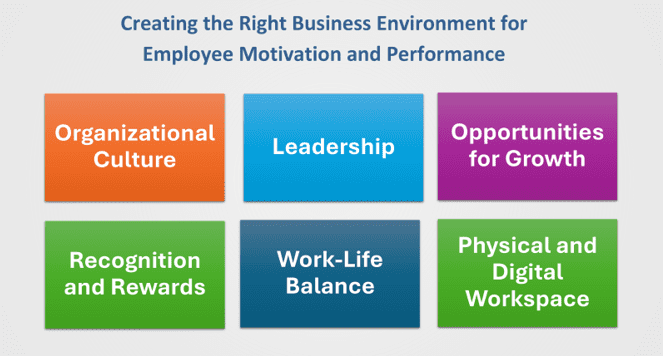 What is the difference between a skate and a head-hunter? One is a scum-sucking, spineless, bottom feeder and the other is a fish!
What is the difference between a skate and a head-hunter? One is a scum-sucking, spineless, bottom feeder and the other is a fish!
Ho, hum…. I’ve been hearing this joke every now and then for years with reference to my profession. I have also heard the same jibe targeting lawyers and estate agents. Yes it is kind of funny, and my intention is not to stand in defence of all head-hunters and recruiters. However, the implication is that we are all cut from the same cloth and tarred with the same brush.
Head-hunting is a direct method of recruitment, the difference between this and traditional advertising and selection can be illustrated with the following analogy:
Advertising and selection is like standing at the bottom of an apple tree and shaking the trunk, normally the bad apples are the first to fall. One picks up the motley selection of fruit and selects the best from a bad bunch. Head-hunting is like placing a ladder against the same tree, climbing to the top and selecting the ripest juiciest apples.
Head-hunting or search recruitment is a tried, tested and accepted method and should be considered as an effective part of recruiting along with a good social media and traditional advertising strategy. It is important to remember that most of the talent is probably working and may well not be actively looking for a new opportunity.
The good old Oxford English dictionary defines head-hunting as:
- The practice among some peoples of collecting heads of dead enemies as trophies
- The practice of filling (usually senior) business positions by approaching a suitable person employed elsewhere.
The first definition I have not tried for a while. The second, however, is what a skilled recruiter uses to find the best possible person to fill a vacancy, and therefore affords his client every opportunity to interview the “ripest apples”
There are ethics, though. It is a definite no-no to approach employees of a client company or candidates you have already placed in positions.
I find it rare indeed that a selected candidate for a search phone call will object. After all, who would not like the suggestion of improved prospects and opportunities? I have never heard anyone give a negative reaction to what is an incredibly flattering compliment. In some circumstances a top professional may gauge his or her value by the number of approaches they get from head-hunters. They may well be concerned if the calls stop.
Sometimes recruiters are accused of manipulating people’s careers and decisions. Occasionally I hear people claiming that they have been “head-hunted” for a certain position, giving the impression that this was an involuntary action of some kind.
I have yet to hear of an employee being dragged kicking and screaming to the recruiter’s office then tied to a chair and forced to sign a letter of appointment with a strong light shining in their eyes! Then, following two days of sleep deprivation, forced to stand in front of their present boss twitching and blurting out the words “I resign!”
Perhaps employers who are afraid that their managers may be enticed by a recruiter should look within and think carefully about how they treat their employees. It is not only money – one has to look at all other areas. Consider training and development, promotional prospects, time off, relationships with fellow workers, the scope and interest of the job, and “are we listening to our managers?” If a company becomes an employer of choice, then they are well on their way to being “head-hunter proof”.
Being a recruiter is a tough job. It requires an intimate knowledge of an industry, its players and its clients’ changing needs. Recruiters need to be aware of the responsibility they have in giving honest advice. Making a career move is a very important decision, is stressful, and a mistake has far reaching ramifications. Recruitment should never be the domain of the salesperson who is only interested in the commission. Or the “CV Cowboys” who never dis-mount and see either candidate or client – they just send email upon email of CV’s and hope they may stick with no thought for the person behind the paper. Recruiters need to understand the responsibility they have towards candidates, the industry and their clients. Quite simply, they need to “care”.
There are scum-sucking spineless bottom feeders in our business, fact. But often a vacancy is given out to any Tom, Dick or Harry who happens to phone. How will these random recruiters represent a company? Audit the agencies you use and make sure they have the same ethical values you hold so high. Using the “fly-by-nights” and the “CV Cowboys” will only perpetuate bad business practices. Find a few agencies you can trust.
There are ethics in head-hunting and recruitment. If you select the right recruiter with a sound track record and ethics who cares, this will pay dividends for you and your company. Also, you will be helping to clean up the recruitment industry and then perhaps I won’t need to suffer through any more “fishy” jokes.
About the author
 Stephen Hickmore studied hotel management in the UK, graduating from Clarendon College in Nottingham with the National Diploma in Hospitality Management. Stephen was recruited as a graduate management trainee by Trust House Forte hotels and went on to complete a further years training in several of their three and four star full service hotels. Stephen obtained his first management position as Banqueting Manager at the Dukes in Kings Lynn at 20 years old. By a twist of fate, a year later, he was transferred to set up the personnel and training department at THF’s only hotel in South Africa, the Parkview in Durban. After three years Stephen returned to the UK with THF, but after a year returned to South Africa to join Southern Sun Hotels. Stephen held positions in Human Resources Management with the group until joining the world of Hospitality recruitment and HR consultancy 20 years ago.
Stephen Hickmore studied hotel management in the UK, graduating from Clarendon College in Nottingham with the National Diploma in Hospitality Management. Stephen was recruited as a graduate management trainee by Trust House Forte hotels and went on to complete a further years training in several of their three and four star full service hotels. Stephen obtained his first management position as Banqueting Manager at the Dukes in Kings Lynn at 20 years old. By a twist of fate, a year later, he was transferred to set up the personnel and training department at THF’s only hotel in South Africa, the Parkview in Durban. After three years Stephen returned to the UK with THF, but after a year returned to South Africa to join Southern Sun Hotels. Stephen held positions in Human Resources Management with the group until joining the world of Hospitality recruitment and HR consultancy 20 years ago.
During the past 17 years Stephen has established recruitment consultancy and search firm “Hickmore Recruitment”. Hickmore Recruitment works closely with key players in the industry to identify hospitality professionals. More information can be obtained at www.hospitality.co.za.
In the last ten years Stephen, with partners, branched out into another new venture “The Hospitality Solutions Company, H.S.C”. HSC specialises in outsourced staffing solutions for the hospitality industry, as well as a popular job board www.hospitalitymojo.com. Stephen can be contacted on stephen@hospitality.co.za



















